Disclosure: Meeple Mountain received a free copy of this product in exchange for an honest, unbiased review. This review is not intended to be an endorsement.
I play a lot of video games.
I came up old school: an Atari 5200, before moving into the classics on Sega platforms like the Master System, the Genesis, the Game Gear, Sega CD, the 32X.
On newer platforms, it has been dizzying to try and keep up with everything, but I’m still trying. I have a PS4 and an Xbox One now, with Playstation Plus and Xbox Game Pass subscriptions keeping me in the fight as I try to play games a few times a month.
When the Meeple Mountain team received notice of a review copy of a game based on one of the side quest games from the video game Assassin’s Creed, I bit. Mind you, I’ve played a couple of the Assassin’s Creed games, but not Assassin’s Creed: Valhalla, which features a mini-game you can play in various locations around the game world called Orlog.
Unfortunately, like the Michael Fassbender film based on the game series and the unbelievably terrible name of this game, Orlog: Assassin’s Creed Valhalla Dice Game really falls short of expectations. As poor as the gameplay is, the biggest question I’m struggling with is the one that I’m surprised did not occur to the team at Pure Arts (the original designer and publisher of the game):
Why does this game exist at all?
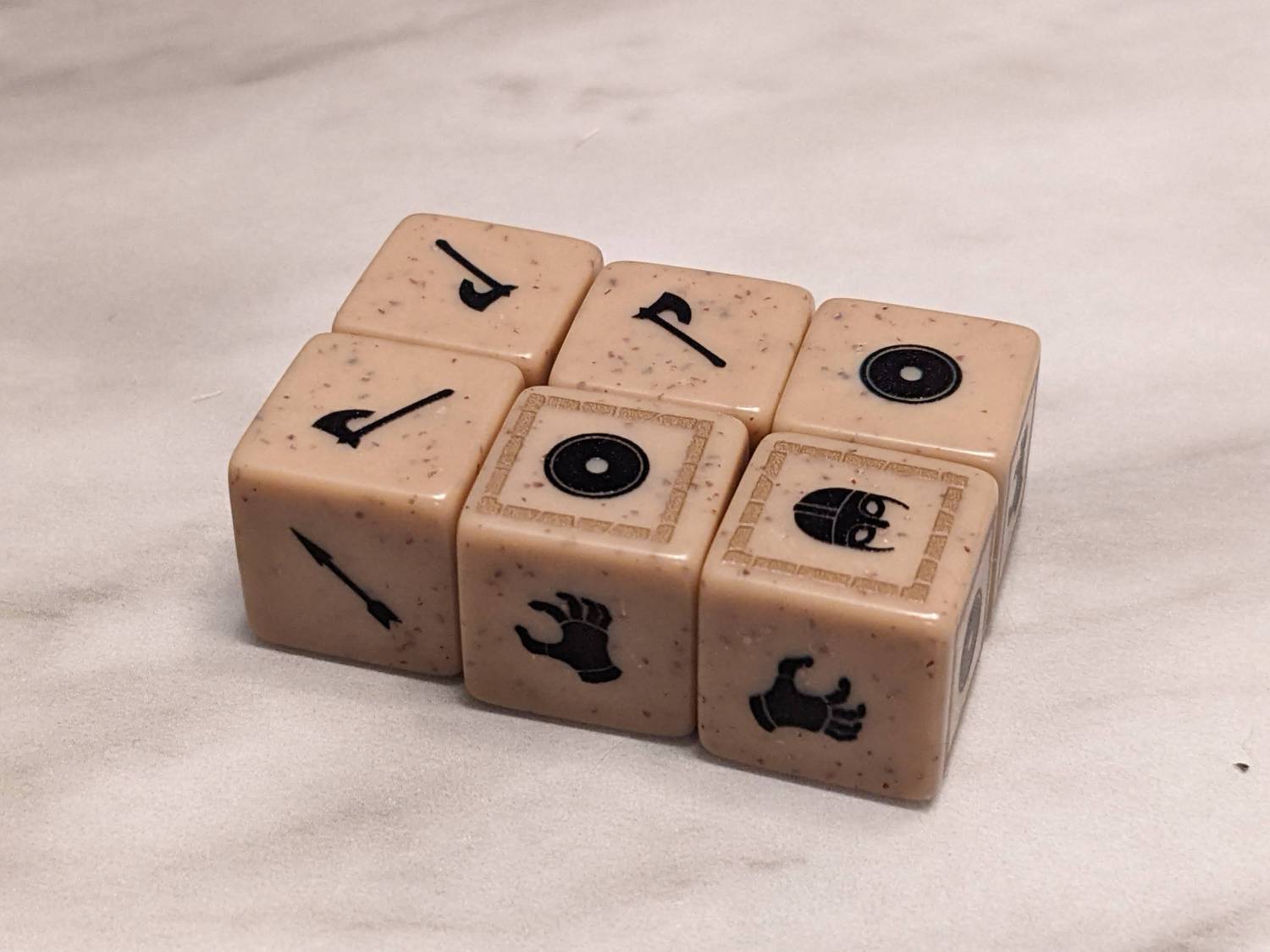
“Sorry, I Can’t Quite Read It”
When Orlog arrived at my home, I was pretty excited. The cover art and overall production looked like a winner before I punched everything and stored components in the well-designed insert.
But then it really hit me: this production looks classy, but devolved quickly into the subtle hints of a rush job.
Let’s start with the God’s Favor tokens. In Orlog, each of the two players in the game will receive their own set of 20 different tokens. The iconography on the front of these cardboard chits is completely useless. That’s OK, as long as I can read what’s on the back.
Except, you can’t. You can’t, because the text is not only tiny (remember, I suffer from blindness at times), but the quality of the printing is also poor.
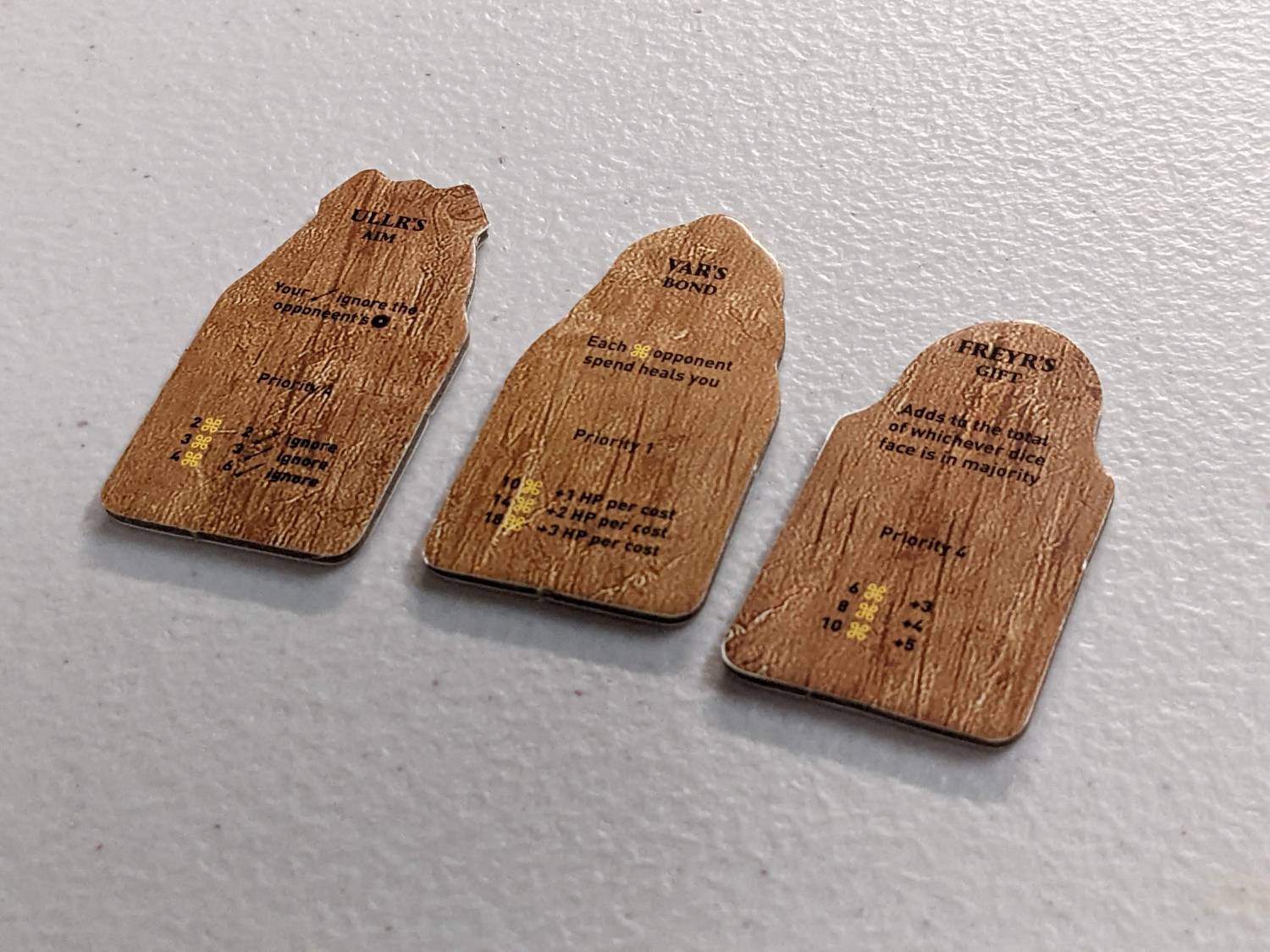
“Sorry, which one?” someone will say about the Favor tokens. “I can’t quite read that,” another will say.
So, right out of the gate, you need to use the cheat sheets with larger fonts that were provided. These sheets were almost certainly provided because no one can read the backs of the tokens.
That was strike one. Strike two for me were the dice trays, plastic bowls that look like you are playing with a porridge bowl in the 1300s or something. Great, they set the scene nicely. But then I looked closer. The bowls are actually kind of cheap. This wouldn’t be a problem if the game cost, say, $20.
The MSRP for Orlog is double that.
The bowls are cheap, but they truly offend when it comes time to roll dice into each bowl. The sound makes it seem like you are dropping boulders onto a glass table. Why is this bowl so loud? The first time I played Orlog, my buddy Kev and I went to work on the game just after his fiancee had gone to bed.
I rolled the dice on my first turn and almost couldn’t believe how loud they were. I thought about putting speed felt down on the bowls, then just switched to rolling dice on Kev’s table, which was softer than doing so in the bowl.
Strike three? The instruction booklet is atrocious. The rules make it seem like Orlog is Yahtzee, but turn-based: one player rolls all of their three dice, then play moves to the next player to roll their three dice, then take the results. But then I watched a rules video from the publisher, and then learned the real rules: play is supposed to alternate so that one player rolls once, keeps some of the dice they want, then the second player rolls dice, keeps some, etc.
Other issues abound. Some of the text on each God’s Favor token is different from the text on the cheat sheet, so I still don’t know which one is right. The outside of the box says playtime is 10-15 minutes, but the rules claim 15-20 minutes. I still don’t know how to handle whether a player is knocked out if they run out of health tokens during the resolution phase but haven’t used their God’s Favor yet for something that allows them to heal up.
Even though the Orlog rulebook is only one page long, they blew it on the rules!
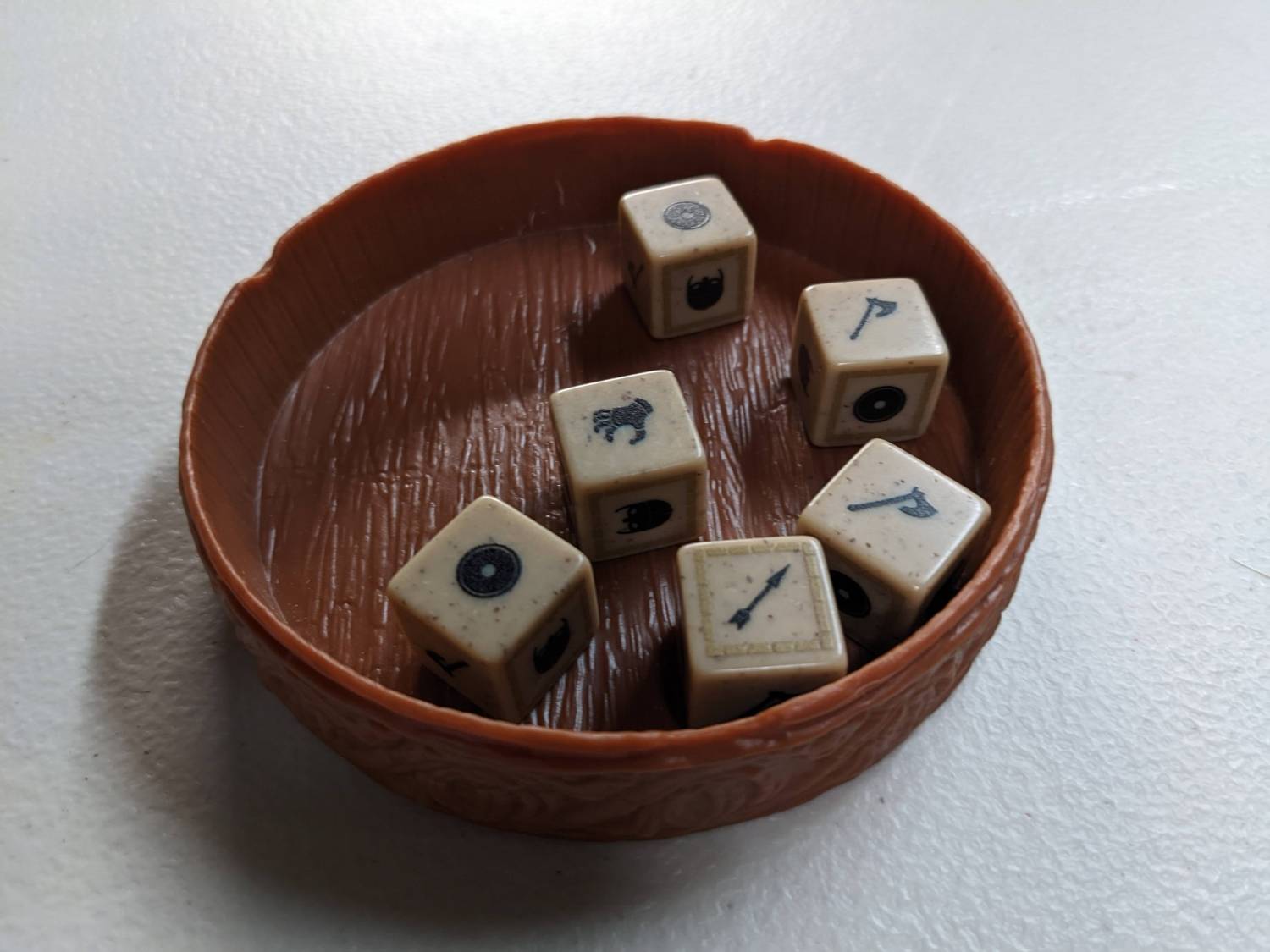
How’s the Game, Though?
Orlog is a two-player-only, head-to-head dice battling game, not unlike Dice Throne but with 85% less production value.
In Orlog, you and your opponent each have six dice, with sides that allow for melee attacks, missile attacks, melee defense, missile defense, and stealing coins. The dice sides sometimes have a somewhat hard-to-see gold box around the selected symbol, meaning that those sides also generate a coin for that player to use later.
Each player will be able to roll dice three times and keep the results they want; then you’ll move to a resolution phase where players resolve dice based on attacks that hit or miss, or coins that are stolen.
In between these two phases is the God’s Favor phase, where each player selects one of the 3-5 tokens they have to use if they can afford to use it during the resolution phase. However, there will be plenty of rounds where you don’t have any cash, so it won’t matter what you pick here.
These are the 20 tokens referenced earlier; some do things like heal a wounded player, or strike an opponent with magic damage, or other effects that do seem pretty cool in theory. These can be used multiple times each game so there is not much paralysis around the decisions of which tokens to use; if you can afford to strike your opponent down with Thor’s Hammer, you will do so if you have the cash.
Each player has about 15 life tokens that are slowly whittled down during play; whoever knocks out their opponent first is the winner.
Play, then, is pretty vanilla—try to get coins while also rolling enough attack icons to damage your foe every turn. Save up enough cash to take advantage of the God’s Favor tokens, rinse, and repeat. Games only last about 10 minutes, so some of my games have just devolved into “punch opponent more times than they punch me” in the hopes of achieving victory.
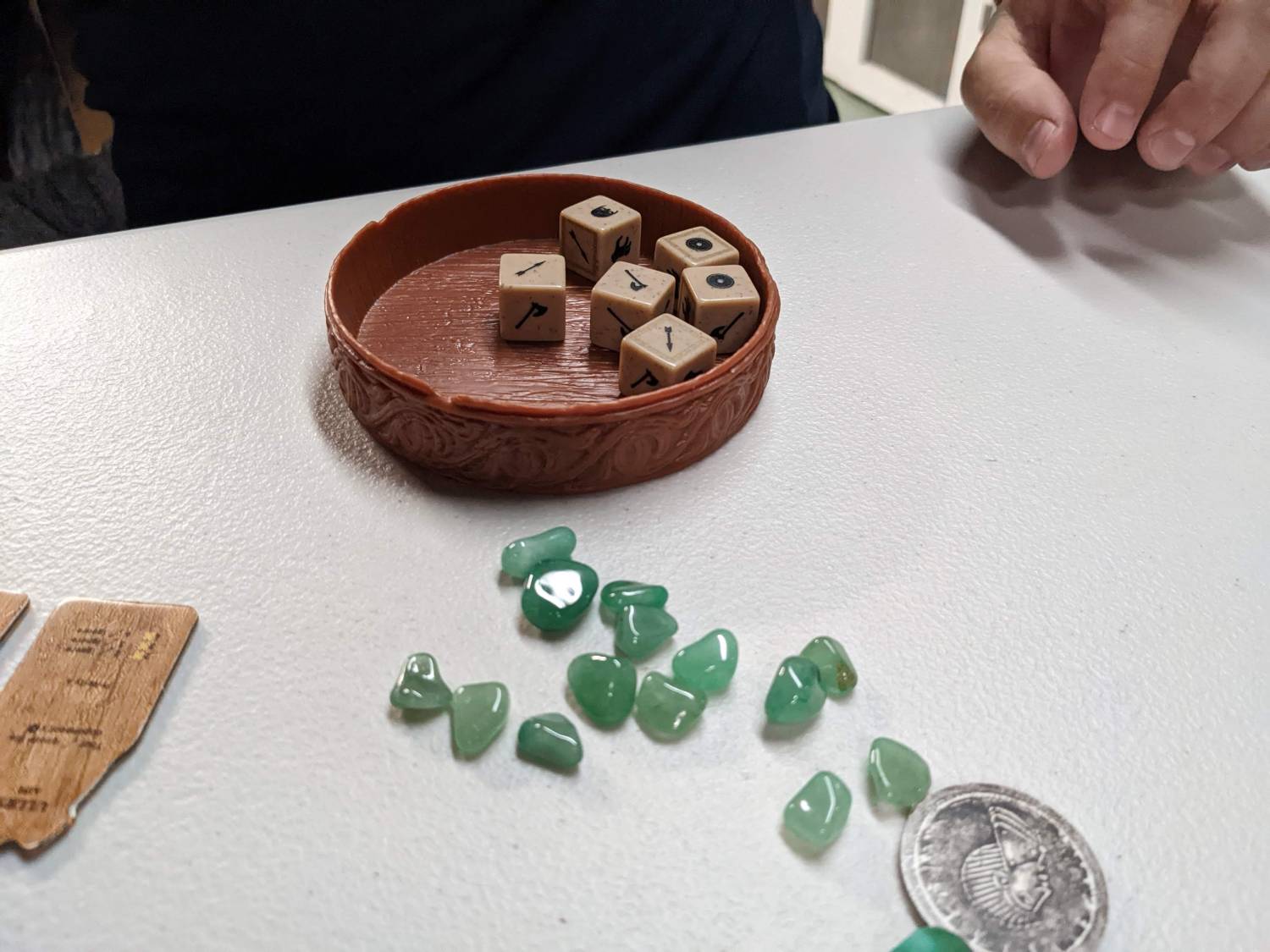
High Strategy, This is Not
Orlog, then, falls into an interesting place. Like other side quest games from big video games—Five Finger Fillet from Red Dead Redemption 2, or Gwent from The Witcher 3—Orlog is a decent diversion during a 100-hour video game, since it’s built into the game’s narrative.
But were fans of Assassin’s Creed: Valhalla clamoring to play Orlog in real life, and would they pay roughly the cost of the standalone video game to do so? That would be surprising. I have friends who absolutely adore Gwent but I don’t see a board game tied to that property, and I’m sure The Witcher 3 outsold Assassin’s Creed: Valhalla.
Orlog, the tabletop game version, is not compelling at all. I won’t say this often, but I’d rather play Dice Realms than Orlog. I didn’t enjoy Dice Throne, but at least it has the production values I’m looking for in a game that is ostensibly Yahtzee for gamers of the now. Orlog has none of this, and it feels like the short films that precede Pixar theatrical releases: I would never pay to watch those five-minute shorts on their own.
Orlog suffers the same fate. It feels like it would be best to include Orlog for free with a larger, longer tabletop game, so that people have something to do while your friend sets up the night’s real gaming attraction. Given our team’s affection for other products distributed by Hachette (Suspects, Nidavellir), Orlog is a major disappointment.


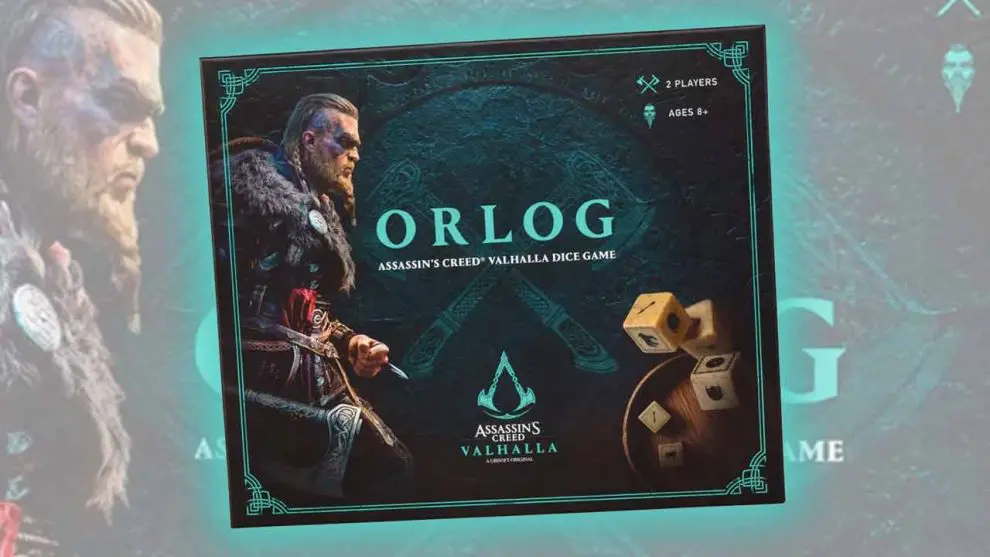

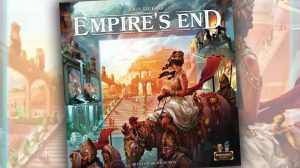
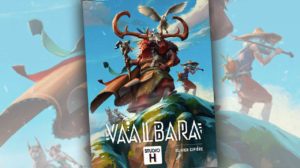

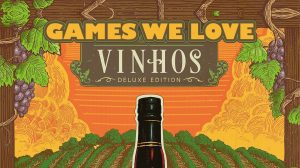

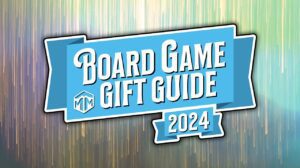


Add Comment